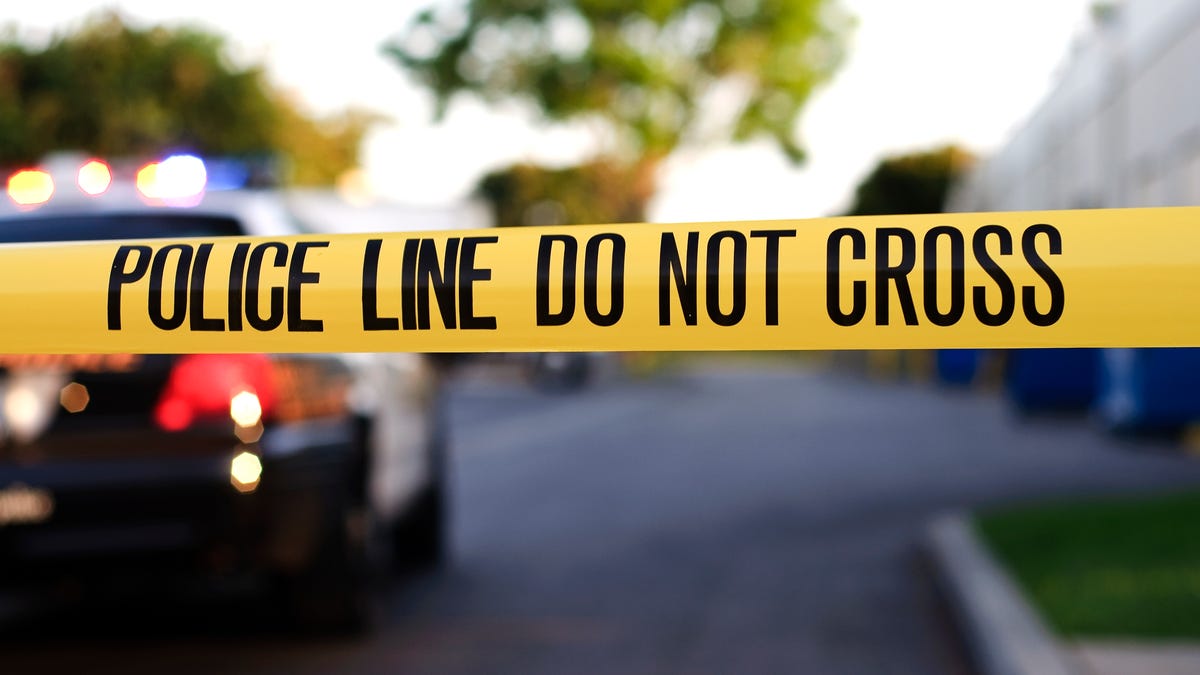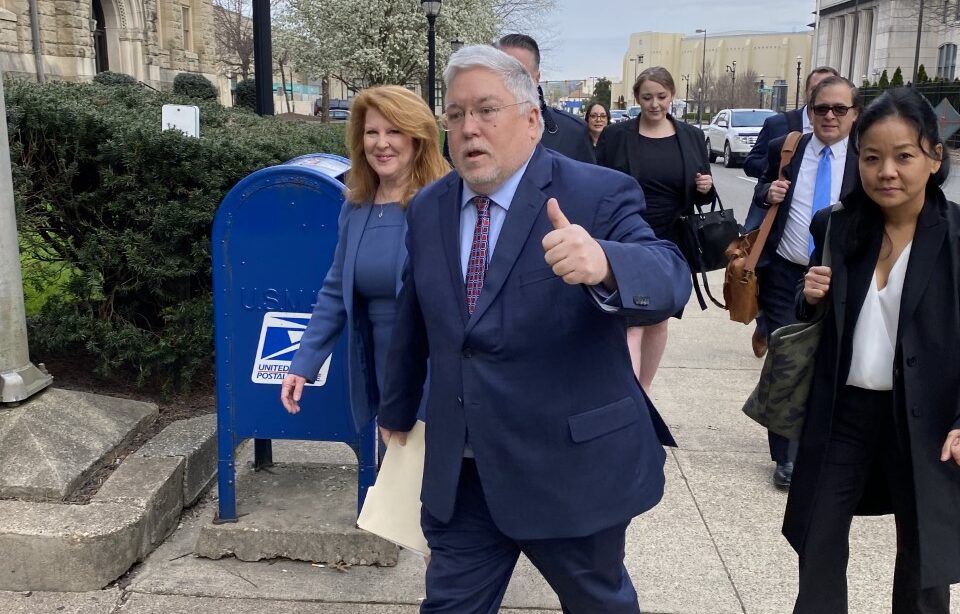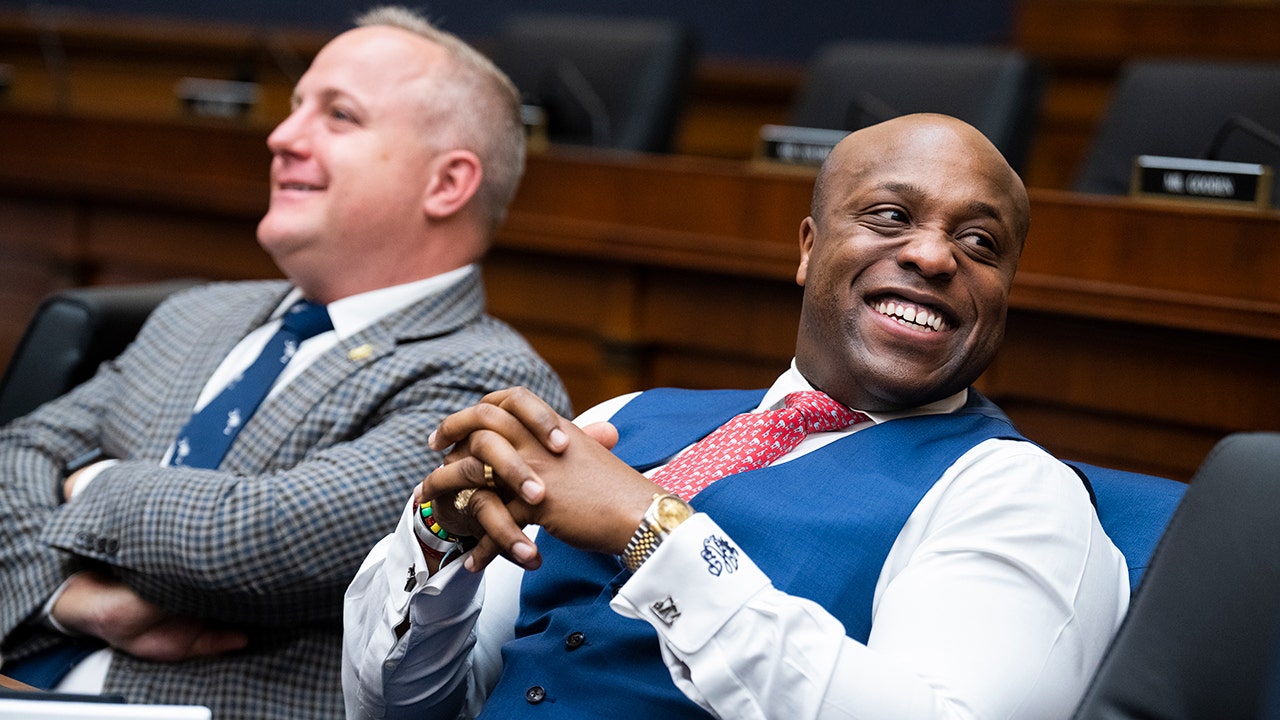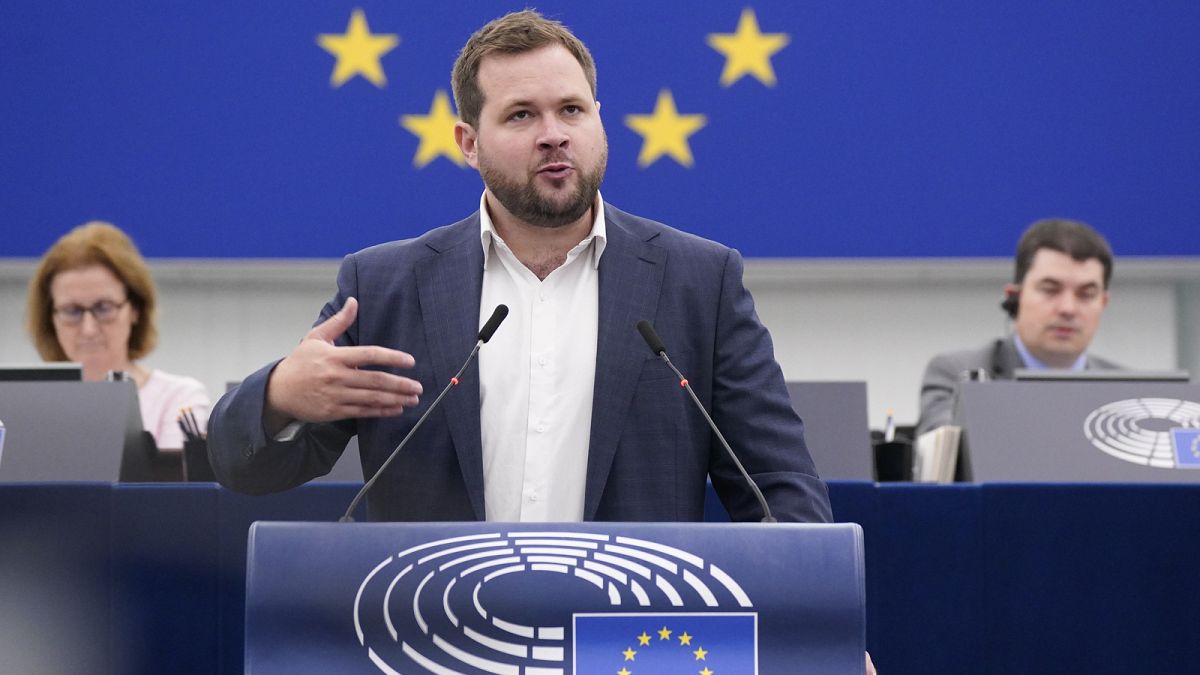Austin, TX
Texas' capital city visitors get parking headache under new order

Sixth Street in Austin.
Cristela JonesFinding parking in downtown Austin is not easy. Whether you pay $20+ to park in a garage or get lucky and find a spot on a metered street, this year you may not need to do either. Ride sharing may become visitors and residents’ best bet since Austin is doing away with parking restrictions for new developments in 2024.
The City of Austin has now become the biggest city in the country to eliminate its parking mandates citywide, according to an NPR report. The effort is part of several ways to make neighborhoods more walkable, ease housing costs, and combat congestion in the city.
Council member Zo Qadri, who represents Central Austin, was part of spearheading the initiative, saying,”I was proud to lead the way on eliminating parking mandates citywide here in Austin. It’s a significant step toward a more affordable, climate-friendly, and transit-oriented city.”
Advertisement
Article continues below this ad
Getting rid of parking requirements for the city means that developers will not have to make parking lots for buildings anymore in certain parts of the city. Before this, Austin required residential and commercial builders to include parking in their developments since the 1950s, but the amount of spots varied depending on what was being built, according to KUT. For example, usually the city required that every one-bedroom apartment be allotted 1.5 parking spots while a building for a three-bedroom home was required to build at least two parking spots.
Since 2013, Austin began to slowly minimize these requirements for new developments downtown and in 2023, the city council voted to remove parking requirements for bars. The city’s rules will still require builders to provide parking spots for those who are disabled under the Americans with Disabilities Act. Special zoning districts within the city will still be under the city’s former parking minimum rules in neighborhoods like Hyde Park.
Austin is following the trend of dozens of other cities across the nation that have eliminated parking mandates, including Portland, Oregon, San Jose, California, and Richmond, Virginia. Although the move is meant to target parking, advocates of the decision say it may impact the city’s housing troubles as throwing out parking requirements will allow developers to build more housing.
“Downtown Austin hasn’t had parking minimums for ten years and yet developments still provide more parking than is currently needed,” Qadri said.
Advertisement
Article continues below this ad
In addition to making more room for housing, disgarding parking eliminates the cost of having to build spaces, which can cost a developer anywhere from $5,000 to $60,000 for one parking spot, depending on whether they’re building a surface parking lot or a concrete garage, according to the Austin city department. KUT reported that staff estimate these costs to a developer building apartments can add up to $200 a month to a tenant’s eventual rent.
Tony Jordan, President of the Parking Reform Network, a non-profit organization based in Oregon that educates the public about the impact of parking policy on climate change, equity, housing, and traffic told MySA, “The bottom line is that nothing changes immediately, but over time our cities can actually become better and do a lot better at providing equitable access to people who can’t drive.”
Despite a majority support for the elimination, some Austinites have mixed feelings about it, especially in a city that has been built around cars.
Reddit user, geezer_red, commented in the Austin subreddit about the NPR report, “What will happen is there will be a limited number of parking spots built, much lower than the units and not allocated to specific units. Then people have to separately purchase parking spots or rent from others. It’s how Brooklyn is and it sucks.”
Advertisement
Article continues below this ad
Another Redditor, Ecstatic-Profit8139, wrote, “we’re not getting rid of parking, we’re removing an unreasonable mandate that forces builders and business owners to provide more parking than anyone needs. there’s a sh**load of parking in this city. it’s always gonna be a chicken and egg situation, but forcing car infrastructure on every development in the city isn’t helping build a better city.”
Census data reveals that 60% of Austin workers drive alone to work, and supporters hope this new initiative will encourage drivers to make more environmentally-friendly transit decisions and if parking is harder, people will choose to take public transportation, bike or walk to their destinations.
“Getting rid of these parking mandates just removes the arbitrary hurdle to having some percentage of our cities be accommodating for people who’d rather not drive which actually is most people [who] say they want a walkable experience,” Jordan said.
Qadri added that he along with council members are working with the Urban Land Institute and local stakeholders to study what more the city can do to better utilize space in developments for uses other than parking.

Austin, TX
Are public universities doing enough to comply with Texas’ DEI ban? Lawmakers will decide | Houston Public Media
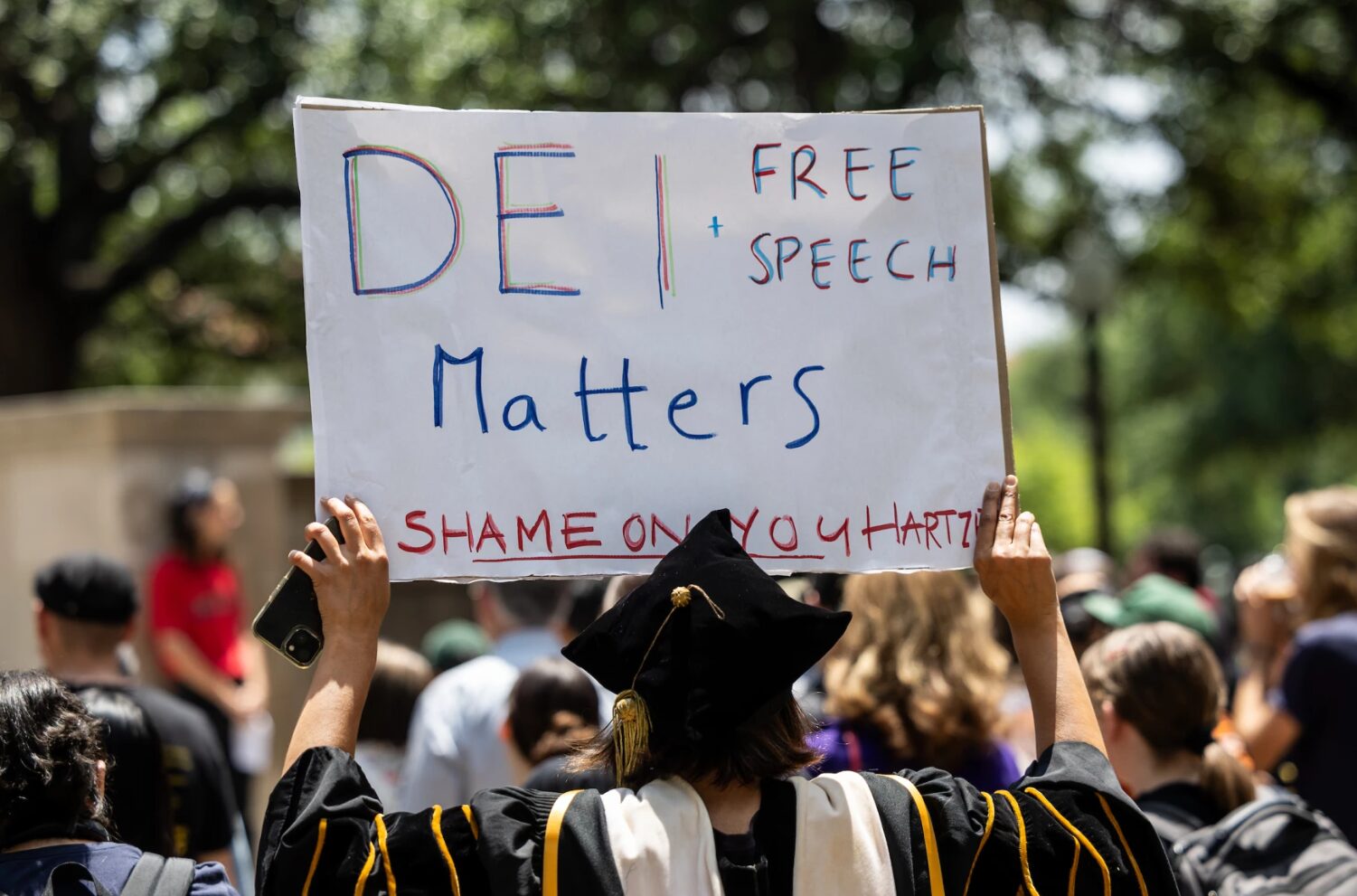
Michael Minasi/KUT
Texas lawmakers got an update Tuesday on the steps higher education leaders are taking to implement a state law that bans diversity, equity and inclusion offices at public universities and colleges. The Republican-backed Senate Bill 17 took effect in January.
The Texas Senate Subcommittee on Higher Education also heard testimony on free speech and concerns about antisemitism on college campuses.
“The topics we’re covering today are timely and get to the fundamentals of what we expect from our higher education institutions,” Committee Chair Brandon Creighton said.
The panel’s meeting comes less than two months after Creighton (R-Conroe) asked chancellors of seven public university systems, including the University of Texas System, to provide information about their efforts to dismantle DEI programs to comply with the law he authored.
“While I am encouraged with the progress I have seen from many institutions of higher education in implementing SB 17, I am deeply concerned with the possibility that many institutions may choose to merely rename their offices or employees titles,” he wrote in his March 26 letter. “This letter should serve as notice that this practice is unacceptable.”
A week after the letter went out, UT Austin President Jay Hartzell announced additional changes at the flagship institution, which had already taken steps to comply with SB 17. The changes included closing the Division of Campus and Community Engagement and laying off about 50 people who had previously worked on DEI initiatives. Groups such as the American Association of University Professors at UT Austin called the latter move unnecessary.
Hartzell told the UT Faculty Council in April that he believed UT Austin was in compliance with the law when it took effect but that others disagreed.
“There are those who are spending their days looking for cases where they think we’re not complying, and we’ve addressed those as they’ve come about,” he said.
Ahead of Tuesday’s hearing, a group of UT Austin students, faculty and staff who oppose SB 17 marched from the UT Tower to the Capitol to speak out against the law and how it has affected campus.
UT Austin student Maggie DiSanza said she marched in solidarity with faculty at Texas’ public universities who have been “unjustly fired because of overcompliance with SB 17.”
“One of the biggest reasons that we’re here today is because SB 17 was written in such a vague way that compliance looks very different from campus to campus,” said DiSanza, a member of the progressive youth civic group Texas Rising. “At UT, we’ve seen an all-out purge of DEI programs.”
Laysha Gonzalez, a third-year UT student, said the march felt like the right place to be.
“I’m first generation Mexican American. I’m the first in my family — and I mean I have a 94-year-old grandmother — and I’m the first in my family to attend a university in the U.S.,” she said. “I get emotional just thinking about it.”
Gonzalez said the law feels like an attack on students like herself.
She added DEI programs benefit all students, and she is concerned about future classes who will not have access to the same resources and opportunities she did.
“We all really need to wake up and really think about the future. You really have to realize and remember what being a Texan means and that means Texans that look all different ways,” she said. “If we want to change the world, it has to be with people that are representative of each person in the world.”
In addition to university compliance with SB 17, the higher education subcommittee also heard testimony on free speech and antisemitism on college campuses.
Gov. Greg Abbott and other Republican lawmakers have repeatedly criticized pro-Palestinian protests as antisemitic and praised UT Austin’s hardline response to demonstrations, which included calling in state troopers. Police arrested nearly 140 people during protests on campus. Law enforcement has also arrested pro-Palestinian demonstrators at UT Dallas and the University of Houston.
In contrast, some UT Austin students have said the university has not responded adequately to concerns about Islamophobia and discrimination against Palestinian and Arab students. Last month, for example, a Muslim UT Austin student was attacked by three men yelling Islamophobic phrases.
In response to that incident, the university said in a statement it was “committed to the safety and well-being of every member of our University community and has no tolerance for violence or other hateful actions against any of our community members, including those in our Muslim, Palestinian, and Arab communities.”
Compliance with DEI ban
Creighton said before SB 17 took effect in Texas, DEI programs on college campuses had grown “out of control, replacing merit with equity for some.”
“In the past, these groups got what they wanted by shouting loud enough, leading universities to allocate tens of millions of dollars, reshaping hiring and promotions, and establishing hundreds of committees and DEI offices to please them,” he said.
Creighton said Texas can come up with other ways to increase the number of students from underrepresented groups who attend college.
“No amount of DEI trainings that are mandatory, workshops or political oaths that have to be signed in order to apply for a job will open up opportunities for underserved students in Texas,” he said.
State Sen. Royce West (D-Dallas) pushed back, saying he thinks DEI opponents have taken too narrow a view of who it benefits.
“To frame DEI just based on race alone, I think is wrong,” he said. “It not only deals with issues of race and gender but geographic location, veteran status, disability status, etc.”
West said it is going to be vital to understand how SB 17 impacts student success on college campuses, and he hopes it’s not “disastrous.”
The law does require public universities and colleges to work with the Texas Higher Education Coordinating Board to produce a biennial study on the impact of implementing the measure. The institutions will be tracking application, acceptance, retention and graduation rates, for example, and the data must be broken down by race, ethnicity and sex.
University of Texas System Chancellor J.B. Milliken told senators about the changes the institution has made to comply with the law so far.
“I believe our board, our system administrative leadership and our presidents and their administrative teams have undertaken the significant work of executing many changes in a very large operation in good faith and successfully,” he said.
Milliken said the UT System has closed 21 DEI offices at its institutions, eliminated 311 full-time and part-time positions that previously focused on DEI and cancelled 681 contracts, programs and trainings. As a result of these changes, he said, the UT System estimates more than $25 million will be saved or reallocated to “other university mission-related purposes.”
Milliken said although DEI programs have been dismantled, UT System institutions are still committed to serving all students.
“Our priorities continue to be focused on expanding access, on increasing affordability and in putting in place the resources that all of our students need, not only to graduate, but to launch strong careers aligned with in-demand jobs and good earning opportunities,” he said.
West asked Milliken whether DEI programs had helped increase graduation rates for underrepresented student groups.
“I think you would be the first to tell me that the programs we had in place had not been adequately doing what we hoped they would do in terms of increasing enrollments and increasing graduation rates,” Milliken said.
But when West pressed him on whether there was at least some increase in graduation rates because of DEI programs, Milliken said he wasn’t sure any increases were a result of the programs.
Other university leaders, including the heads of the Texas A&M University System and University of Houston System, also testified.
During public testimony, opponents of SB 17 told senators about the negative impact of the law and its unintended consequences.
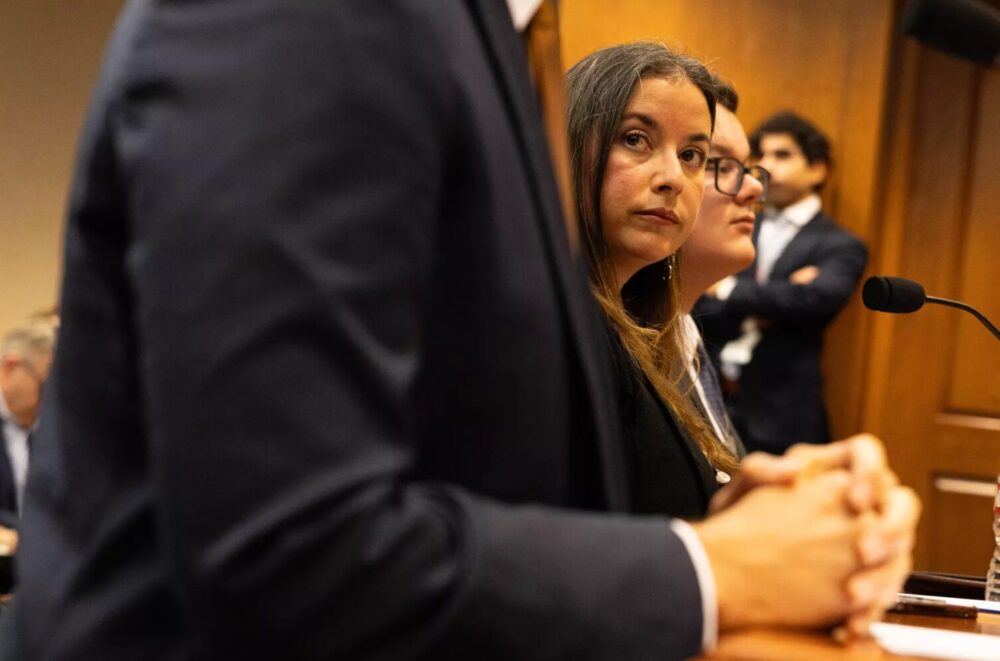
Patricia Lim/KUT
Andrea Gore, a professor in the UT College of Pharmacy, said the DEI ban is going to impact the university’s ability to get research dollars.
“Here’s why SB 17 needs to be amended: First, research proposals to biomedical funding agencies require a diversity statement,” said Gore, who has brought $17 million in grants to UT Austin. “There is simply no way of getting around these federal requirements.”
Dallas City Council member Adam Bazaldua testified that SB 17 is going to hurt efforts to develop a diverse, well-rounded workforce.
“Legislation like SB 17 and banning of DEI policies at higher education [institutions] will create a climate that is hostile and unwelcoming,” he said. “It is detrimental to our economic growth.”
Alicia Moreno, who lost her job at UT Austin because of efforts to comply with SB 17, echoed that concern. She said shuttering programs and pulling funding from student organizations has had major consequences.
“This bill has caused our students to feel unwanted and unsupported,” she said, “and it has taken away…programs and necessary critical services.”
Moreno also said UT Austin has discontinued initiatives that did not run afoul of SB 17, such as the Monarch program, which supported undocumented students.
“It was claimed by UT Legal that we did race-based programming, which is completely false,” she said. “UT Legal told me they made their decision by only looking at our Instagram page.”
Moreno said that raises concerns about how the university determined which programs did not comply with SB 17.
“I ask that you all provide further clarification on what it really is that you need to be compliant with SB 17 and to hold institutions accountable from this overreach of this bill,” she said.
Free speech, antisemitism and pro-Palestinian protests
While the bulk of invited testimony focused on compliance with SB 17, the first hour of the hearing was devoted to a discussion about free speech and antisemitism on college campuses.
Creighton characterized pro-Palestinian protests on college campuses across the U.S. as antisemitic. He praised UT System and UT Austin leaders for their response to the demonstrations.
“I respect everyone’s right to protest on campus when they follow the rules,” he said. “When they incite and encourage danger and/or harm to others, Texas students and all Texans and faculty must be kept safe.”
Senators heard invited testimony from several people, including Levi Fox, a member of Longhorn Students for Israel.
He said he and some other Jewish students felt threatened by the protests at UT Austin, adding that a student and professor made antisemitic comments to him.
“Universities everywhere are places for learning, growth and experiences,” he said. “Recently we’ve seen our nation’s most prestigious universities become breeding grounds for hate, misinformation and isolation.”
Fox said he has seen Jewish students remove symbols of their faith because they’re concerned about being targeted.
“I’ve seen firsthand, Jewish students taking off yarmulkes, or hiding their Stars of David that they hang around their neck,” he said.
Courtney Toretto, a policy director with the Anti-Defamation League, was also invited to testify. She said the group has seen an unprecedented spike in antisemitic incidents on college campuses since Hamas’ Oct. 7 attack on Israel, which killed about 1,200 people. In the months since, Israel’s military has killed more than 35,000 people in Gaza.
“Over the past few weeks, we’ve watched in dismay as campus life at universities, including UT Austin and Dallas, has been upended by protests that have too often devolved into hateful, antisemitic rhetoric,” she said.
But other people who spoke during public testimony pushed back on the idea that pro-Palestinian protests are antisemitic.
Julia Heilrayne said the April 24 protest at UT Austin was meant to be peaceful.
“It was never planned to be, nor did it become the antisemitic event that it has been made out to be,” she said.
Heilrayne, who said she has Jewish ancestry, criticized university leaders’ decision to call in state troopers.
“What happened on campus was a clear violation of their rights as students attending a public university,” she said.
She added state troopers arrested her sister, knocking her to the ground and “aggressively” twisting her arms.
Dr. Aman Odeh, a pediatrician who recently volunteered in Gaza, said lawmakers should not lose sight of why students are protesting.
“When I heard the testimonies this morning there was not a mention of why these students are speaking up,” she said. “I was talking to a nurse [in Gaza] about how she lost her 1-year-old to a blast explosion. She did not get to say goodbye.”
Odeh added protecting the right to free speech is vital.
“By ensuring our institutions of higher learning remain spaces of open dialogue, critical thinking and intellectual diversity, we uphold the very essence of democracy,” she said. “Let us stand together in defense of free speech and ensure that future generations inherit a society where their voices are heard.”
Creighton said in a statement following the hearing that it “will lay the groundwork for important legislation that I will work to advance in the 89th legislative session.”
Austin, TX
Shetler Leads the Spartans on Day 2 of the NCAA Austin Regional

AUSTIN, Texas – Caleb Shetler fired a 71 (-1) to lead San José State men’s golf following the second round of the NCAA Austin Regional at The University of Texas Golf Club on Tuesday.
- SJSU finished the day in a tie for 12th with a two-round total of 590 (+22).
- Ivan Barahona shot a 72 (+1).
- Carl Corpus fired a 74 (+3).
- Xuan Luo recorded a 76 (+5) to round out the Spartan lineup.
UP NEXT: The Spartans will play the third round starting on Wednesday morning at 7:20 a.m. PDT. Click here to view the pairings and tee times.
Click here to build your One Spartan Nation membership.
#AllSpartans
Austin, TX
ABC13's years of Houston-area squatter stories leads to first steps in Austin to bolster laws

HOUSTON, Texas (KTRK) — The sound of construction equipment at a house on the 6300 block of Costa Mesa is music to the ears of long-time neighbor Jethro Cooper.
The southwest Houston house sat empty for years, and a mix of teenagers after school, squatters, and a fire left the home as a community eyesore.
“Thank you for your effort in trying to bring it to their attention,” Cooper told ABC13 on Tuesday, about two weeks after Eyewitness News first noted problems with the house. “Now, since you brought it to their attention, they’re doing something about it.”
SEE MORE: Houston homes taken over by squatters leave owners, neighbors frustrated by legalities
However, Cooper knows one repair project on this house is insufficient to solve the more significant problem of homes in bad shape or occupied by squatters proliferating neighborhoods.
“We need help,” he said, noting that efforts to get the house torn down have gone nowhere, and chasing out drug users and others who may squat in the house offered temporary relief.
State Sen. Paul Bettencourt, R-Houston, promised, “We’re going to put this all together and fix it.”
Bettencourt is leading the Texas Senate’s initiative to improve the state’s squatter laws.
Generally speaking, squatter situations in Texas are considered civil matters, and it is challenging to get squatters out of a home without going through the tedious eviction process. In addition, Texas has strong property rights laws, so demolishing abandoned or dilapidated homes is also a prolonged problem.
Bettencourt said he has seen reports of these issues across the state, including the cases ABC13 highlighted over the past year.
“I’ve seen horror stories about squatting – some of your good work – all across the state. So, we’re bringing everyone in to talk about what we can do to stop squatting,” he said.
On Wednesday, Bettencourt is holding a hearing in Austin with an eye on passing bills next year to make it easier to push out squatters by increasing criminal penalties and giving law enforcement more tools.
“It’s just part of the times, but that doesn’t mean it’s acceptable. It shouldn’t be tolerated. It’s illegal, and we’re going to make it a lot more illegal once we get bills passed in the next legislative session,” he said.
“I think anything to help the person who is the victim is needed,” Riana Sherman, one of the squatting victims ABC13 first profiled in 2023, said. “When our situation happened, we called this person, we called that person for help, and nobody was able to help because the person who was squatting had a lease that was not a real lease.”
Sherman and her family were under contract to buy a house in Houston’s Meyerland area but had to pull out because squatters moved in and stayed.
She said her children were traumatized, and she lost thousands of dollars in the process.
“Am I hopeful? I always try to see the good in situations. I always like to be hopeful,” Sherman said, reacting to the possibility of new laws passing.
The Texas Legislature will convene next January. ABC13 will keep you updated on whether the state’s squatter laws will be refreshed to address the problem plaguing homeowners.
For news updates, follow Miya Shay on Facebook, X and Instagram.
Woman claims trespassers moved into her Meyerland rental home and changed her locks
The Meyerland homeowner reached out to ABC13 extremely frustrated, saying a family of five is refusing to leave her rental home after changing its locks.
Copyright © 2024 KTRK-TV. All Rights Reserved.
-

 Politics1 week ago
Politics1 week agoHouse Dems seeking re-election seemingly reverse course, call on Biden to 'bring order to the southern border'
-

 World1 week ago
World1 week agoStand-in Jose Raul Mulino wins Panama presidential race
-

 News1 week ago
News1 week agoCompass Direct LLC’s 2024 Registration in North Carolina
-

 World1 week ago
World1 week agoTech compliance reports, Newsletter
-

 News1 week ago
News1 week agoColumbia University cancels its main commencement ceremony after weeks of turmoil
-

 News1 week ago
News1 week agoMan, 75, confesses to killing wife in hospital because he couldn’t afford her care, court documents say
-
News1 week ago
UCLA to resume in-person classes after Gaza protest crackdown
-

 Politics1 week ago
Politics1 week agoPresidential polls show deadlocked race as party conventions quickly approach





